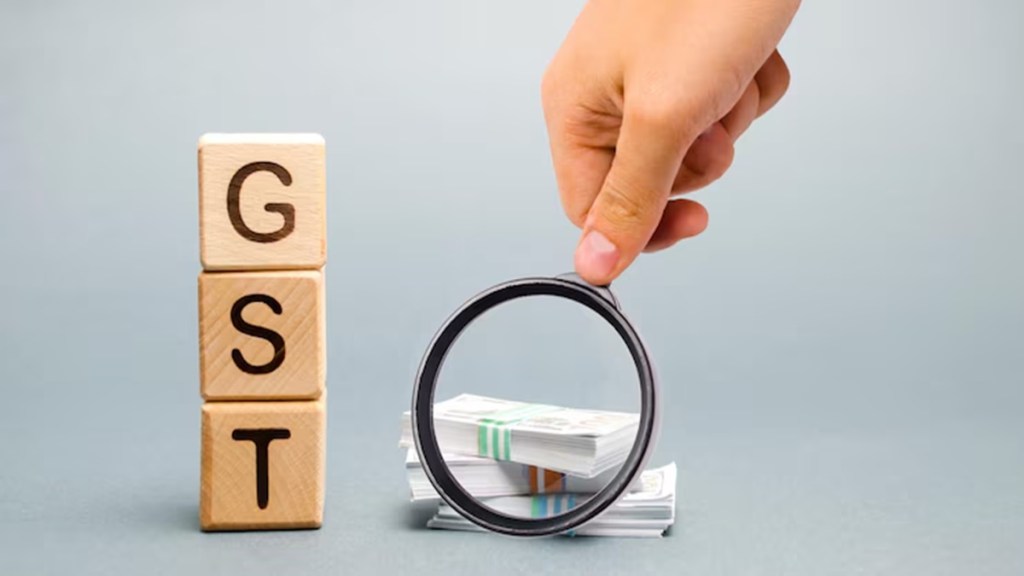The auto, AC sectors are rallying on the stock markets on hopes of lower GST rates. This is after Prime Minister Narendra Modi announced that the government will streamline the GST structure into two principal slabs of 5 per cent and 18 per cent, with a higher 40 per cent rate for luxury and sin goods.
Reports indicate that almost 99 per cent of items in the 12 per cent slab will move to 5 per cent, while 90 per cent of items in the 28 per cent slab will shift to 18 per cent. A special 40 per cent GST slab is proposed for 5–7 sin or luxury goods.
Brokerages see Rs 1 lakh crore savings from GST and income tax relief
According to Motilal Oswal, PM Modi’s Independence Day announcement to restructure GST rates, along with income tax relief from Budget 2025-26, could yield potential savings of Rs 1 lakh crore for taxpayers. “These moves show that the government has strengthened its focus on consumption revival,” said Motilal Oswal.
Nomura has said that the government’s plan to simplify GST slabs could provide a strong push to consumption and improve consumer sentiment, especially during the festive season. “Autos, tractors, ACs, and food companies may benefit the most; approval likely before Diwali,” Nomura noted in its report.
GoM to review proposal on August 21: Sectors and stocks in focus
The proposal will be taken up by the Group of Ministers (GoM) on August 21, and the GST Council is expected to finalise the new structure next month. If approved, the tax cuts will be announced by Diwali, the country’s biggest shopping season.
Here is a look at some key sectors and stocks that will benefit, and those that may feel the heat.
GST cut likely on small cars; Boost for Maruti Suzuki, Hyundai and Tata Motors
Indian government is planning to slash GST on small cars to 18 per cent from the current 28 per cent, according to government sources cited by Reuters. Meanwhile, bigger cars, currently taxed at nearly 50 per cent, may come under a new 40 per cent slab, with additional levies being considered to keep overall incidence intact at 43–50 per cent.
According to the Reuters report, If implemented, the move will boost sales for Maruti Suzuki, India’s largest carmaker, which has seen its market share slip to about 40 per cent from over 50 per cent in five years as sales of models like Alto, Dzire and Wagon-R dropped. Hyundai Motor India and Tata Motors are also expected to benefit.
Nomura expects the automobile sector to gain significantly if the GST rate is reduced. A reduction to 18 per cent could lift demand by 15–20 per cent, according to the brokerage. SUVs may benefit even more if the government introduces a common rate for small cars and SUVs.
For tractors, the likely move from 12 per cent to 5 per cent GST would make them more affordable and support demand. Nomura said this would be a positive for companies such as Mahindra & Mahindra.
Lower GST could help Voltas, Havells clear inventory: Nomura
Air-conditioners, which are still taxed at 28 per cent, may also move to the 18 per cent slab. Nomura said this could cut consumer prices by nearly 8 per cent, helping companies like Voltas and Havells clear excess inventory in the market.
Food sector set to benefit broadly; Nestle, ITC may emerge top gainers
According to Nomura, FMCG companies will also be among the biggest beneficiaries of the reform. Products such as noodles, butter, cheese, snacks and sauces may shift from 12 per cent GST to 5 per cent.
Nomura identified Nestle, ITC, Britannia, Dabur and Hindustan Unilever as key companies that would gain from this move.
However, Nomura noted pointed out that some products like juices, jams and sugar-based confectionery may be shifted to the 18 per cent slab. This could negatively impact Dabur, as juices account for nearly 15 per cent of its sales.
Lower rates could slow EV adoption, says Nomura
Nomura cautioned that a cut in GST for internal combustion engine vehicles could reduce the price advantage enjoyed by electric vehicles, which are already taxed at just 5 per cent. This could slow EV adoption, undermining government schemes designed to promote clean mobility.
Cigarettes may move to 40 per cent GST slab
On sin goods, Nomura said media reports suggest GST on cigarettes could rise to 40 per cent from 28 per cent, with the current compensation cess being replaced by a health cess. The brokerage estimates cigarette makers may need to raise prices by 7–8 per cent to offset the increase but added that consumers are likely to absorb such hikes.
Nomura highlights revenue loss concerns from GST cuts
Nomura flagged concerns around the potential revenue loss from the reforms. A GST cut on automobiles alone could result in a revenue shortfall of more than Rs 7.8 lakh crore. To make up for this, automobile volumes would need to jump by over 50 per cent.
Despite this, Nomura said the government’s push, backed by political will, makes this round of reforms more likely to succeed compared to previous attempts. “Given the weakness in consumption demand, the tax relief will provide a much-needed boost to consumption and consumer sentiment,” the brokerage said. “Together with GST rationalisation, the scheme is intended to boost disposable incomes and employment.” Nomura added.
